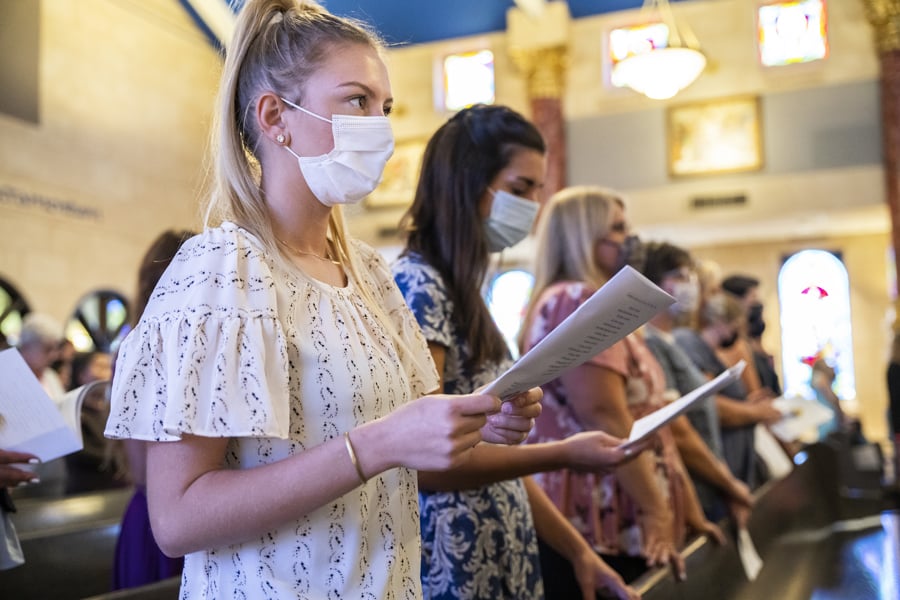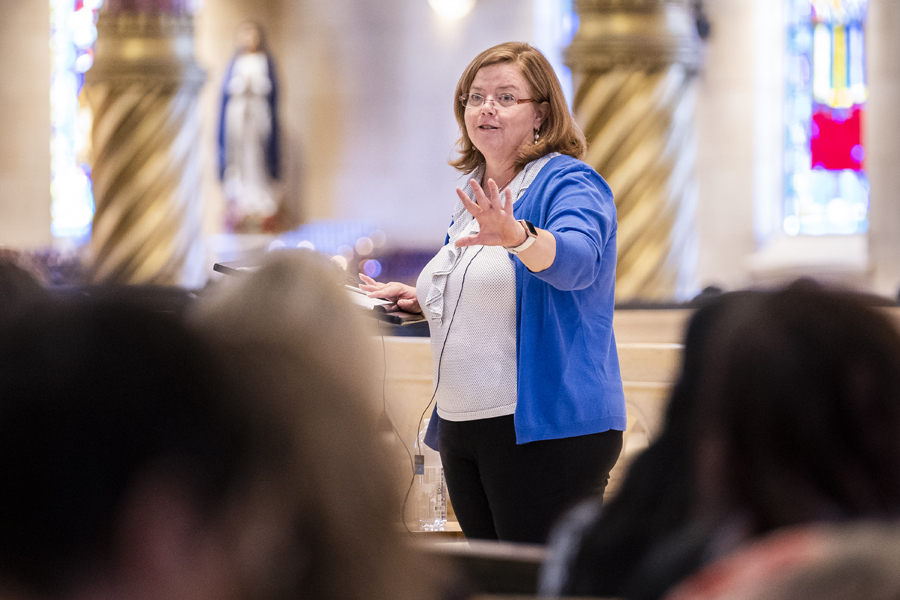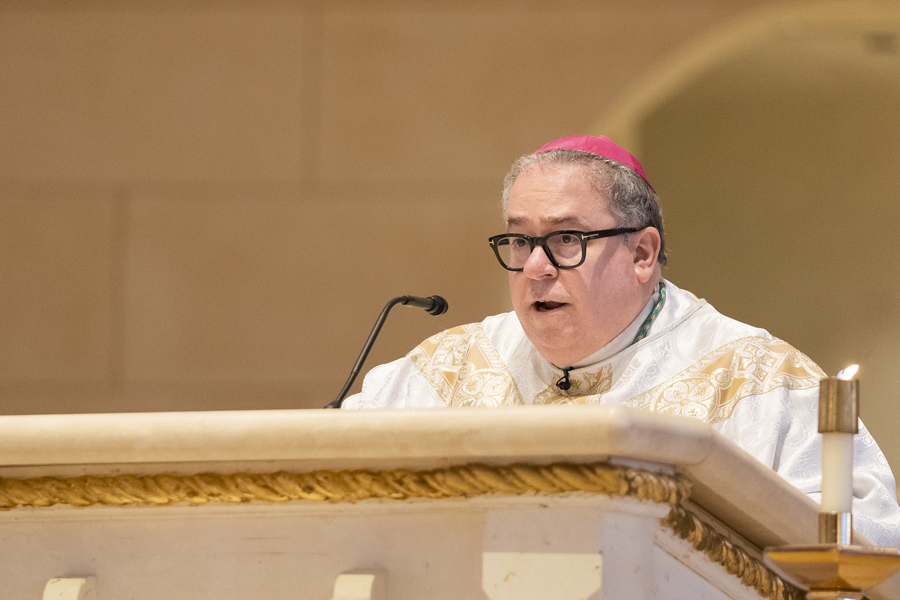Teachers begin school year with education that lasts

Caitlin Turbeville, a teacher at St. Mary Catholic School in Gainesville, participates in the Catholic Schools Convocation Mass at St. Elizabeth Ann Seton Church on Aug. 11, 2021. (NTC/Juan Guajardo)
‘Twas the day before school’s start, and all through the halls
Not a teacher was stirring. They all heard the call.
KELLER — On August 11, when teachers could have been sharpening pencils and labeling cubby holes in preparation for the first day of school less than 24 hours away, they assembled at St. Elizabeth Ann Seton Church for the Diocesan Convocation of Catholic Schools.
The annual event began with Mass celebrated by Bishop Michael Olson. The pews of the large Keller church were filled with teachers, administrators, staff, and pastors from the 17 Catholic schools in the Diocese of Fort Worth.
Occurring on the Memorial of St. Clare, Bishop Olson referenced the saint, along with Saints Peter and Paul, as examples of conversion and sacrifice. All three grew to know Jesus through worship, prayer, and ministry, which enabled them to prioritize what is eternal and true.
He said, “The only thing that lasts is what we can take out of this life. What we can take out of this life is the state of our soul, saved through faith by the truth; redeemed through hope by the beauty of God, the beauty of the incarnation; and formed by love made manifest in the selfless sacrifice of Jesus Christ — the son of God made man and the Son of Mary — by His cross and resurrection.”
After the Mass, the faculty were addressed by Bishop Olson and by Mary Pat Donoghue, the executive director of the Secretariat of Catholic Education for the United States Conference of Catholic Bishops. Both of them reflected on the importance of a classical Catholic education.
Donoghue began with an example from her days as a schoolteacher, then administrator, in a Catholic school in Maryland threatened with closure due to declining enrollment. A transition over several years to classical Catholic education has doubled the student body, and each class now has a waiting list.

Mary Pat Donoghue, executive director of the Secretariat of Catholic Education for the U.S. bishops, gives a talk about classical education to teachers and faculty from Catholic schools across the diocese on Aug. 11, 2021. (NTC/Juan Guajardo)
Donoghue compared classical Catholic education to classic Coke. It’s the original, before the recipe was changed. A classic Catholic education has produced the greatest minds and greatest saints of history, she said.
The former teacher and administrator said that classical Catholic learning has three elements: a recognition that Jesus Christ is the Lord God and that humans have an eternal destiny; an understanding that education is a process of integral formation which enables teachers and students to live in freedom and truth; and the realization that education is a process which introduces students to the nature of reality, one that is both natural and supernatural, physical and metaphysical.
Teaching in the classical tradition relies on grammar, the building blocks of language; logic, the ability to use facts to make an argument; and rhetoric, the ability to present the truth of a lesson.
Bishop Olson said that classical education points to the eternal horizon.
He said, “Centuries have shown that a classical education can best foster the cultivation of noble and virtuous souls in union with their bodies, generating saints and a humane culture that’s pleasing to God and comforting to human beings in the midst of this destructive chaos that is the unwinding of selfishness that we are faced with….”

Bishop Michael Olson delivers his homily at the Mass for the Diocesan Convocation of Catholic Schools on Aug. 11, 2021. (NTC/Juan Guajardo)
According to Interim Superintendent of Catholic Schools Melissa Kasmeier, diocesan schools have been transitioning to a traditional Catholic education for a few years, with an emphasis on truth, beauty, and goodness.
Kasmeier also thanked the teachers and staff for their “reliance on faith and fortitude during the unprecedented, uncharted waters,” completing a successful school year in 2020-2021 despite the pandemic.
Holli Martin, a sixth-grade ELA teacher at Holy Trinity Catholic School in Grapevine, said the talks on classical Catholic education “opened her eyes to what it is, what it looks like.” Since she began teaching at Holy Trinity three years ago, the school has been moving toward classical education, “but it’s a process. It’s not overnight,” she said.
Martin taught at Our Lady of Victory Catholic School for seven years, then left to teach in a public school. “The tug of God called me back,” she explained. “I absolutely love it. I’ll never go anywhere else.”
